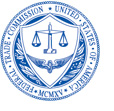Rebates
Rebate offers can be irresistible to consumers, slashing the price of consumer goods at the time of purchase or promising partial or full reimbursements after the purchase.
Some manufacturers and retailers entice shoppers with instant cash rebates that can be redeemed immediately at the checkout counter.
But most rebates are of the mail-in variety. They require consumers to pay the full cost of an item at the time purchase, then to send documentation to the manufacturer or retailer to receive a rebate by mail.
The documentation required generally includes the original sales receipt, UPC code, rebate slip, and the customer's name, address and telephone number. In most cases, this paperwork must be sent to the manufacturer or retailer within 30 days of the purchase. Consumers generally receive their rebates up to 12 weeks later.
But the Federal Trade Commission cautions consumers against being "baited" by rebates that never arrive or arrive far later than promised. By law, companies are required to send rebates within the time frame promised, or if no time is specified, within a "reasonable" time. "Reasonable" in this case often is interpreted as within 30 days.
When purchasing a product that offers a rebate, the FTC encourages consumers to:
- Follow the instructions on the rebate form and enclose all required documentation in the envelope when filing for a rebate.
- Make a copy of all paperwork to be mailed when applying for a rebate. It's the only record a consumer will have of the transaction if anything goes wrong.
- Contact the company if the rebate doesn't arrive within the time promised.
- If the rebate never arrives or arrives late, file a complaint with the Federal Trade Commission, the state Attorney General or the local Better Business Bureau.
This article was previously available as Taking the 'Bait' Out of Rebates.
